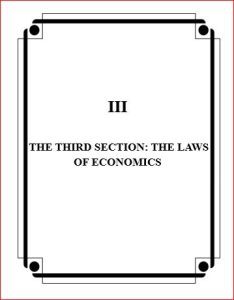
The Islamic religion covers all areas of individual, social, and economic human life. As much as the Islamic sharī‘a (laws) has paid attention to the rules of worship and the relationship of man with God, it has also given importance to social and economic issues and encouraged people to prosper the world, earn a halal livelihood, provide comfort and well-being for their families, and help the needy.
The laws of Islamic economics cover production, distribution, and consumption. The means of individual and public ownership, types of trading, helping the needy, or the ways of using divine blessings and Ḥarām transactions are some of these topics.
A summary of the most important laws regarding financial obligations, Ḥarām transactions, and permissible transactions is provided in this section.
ثبت دیدگاه